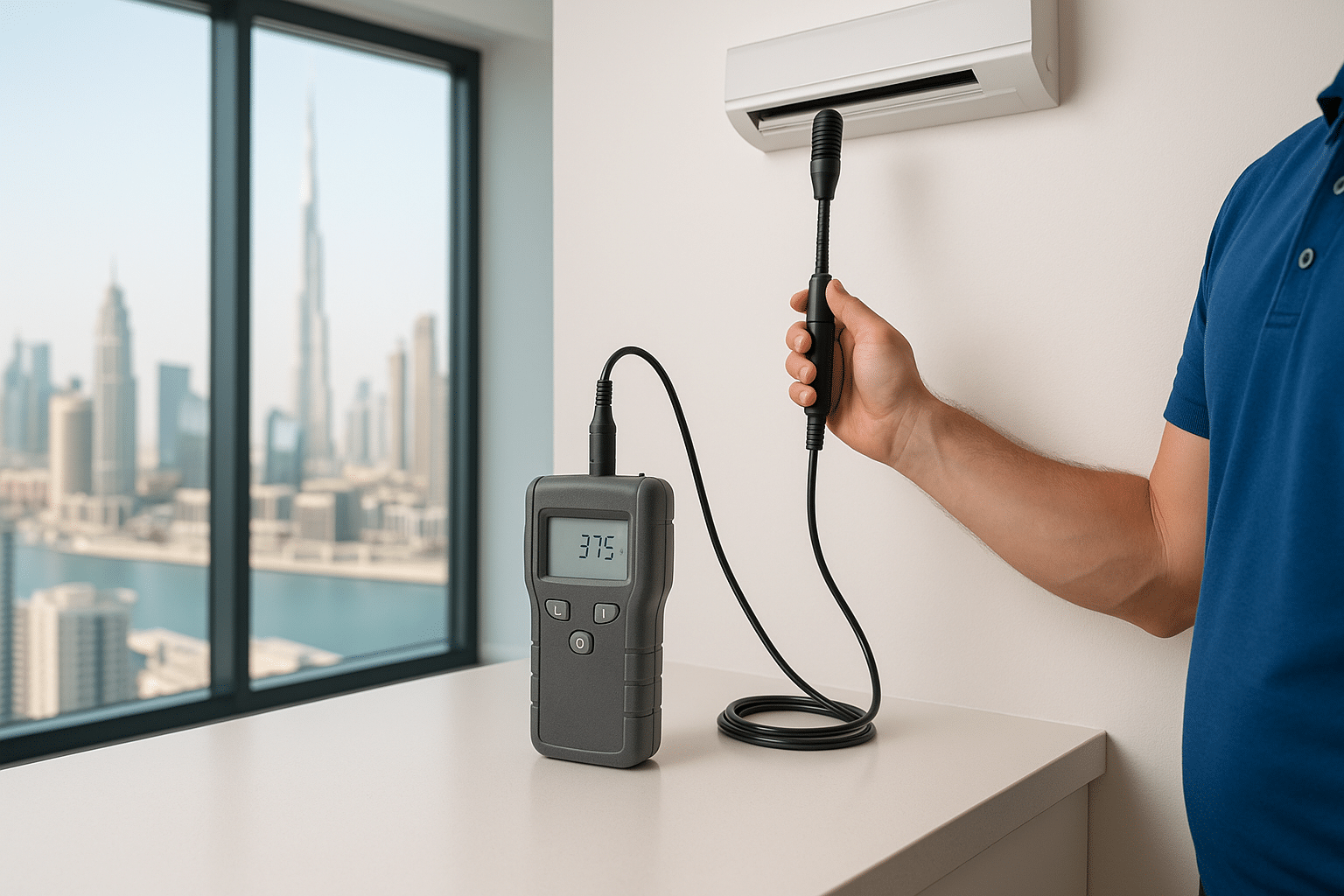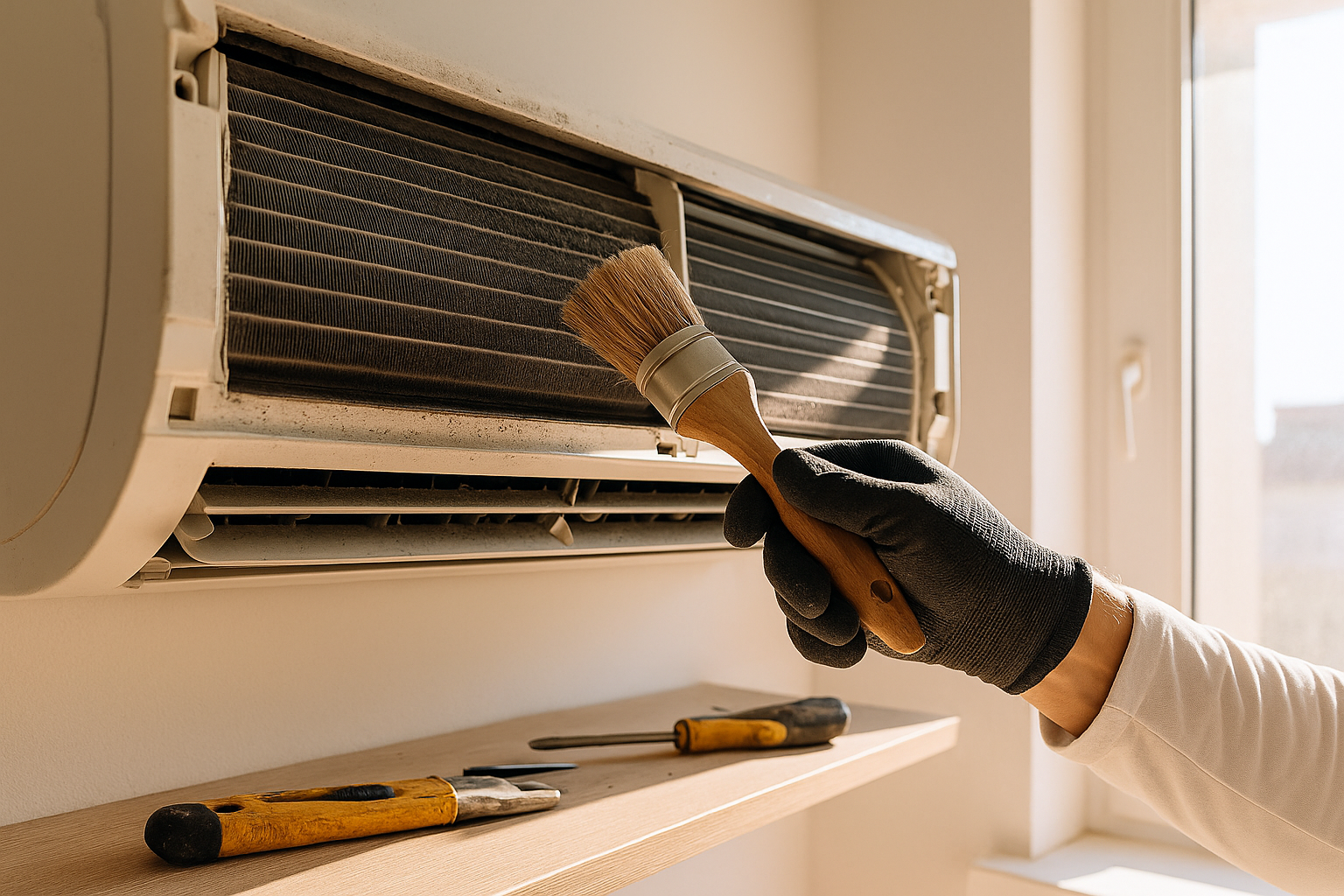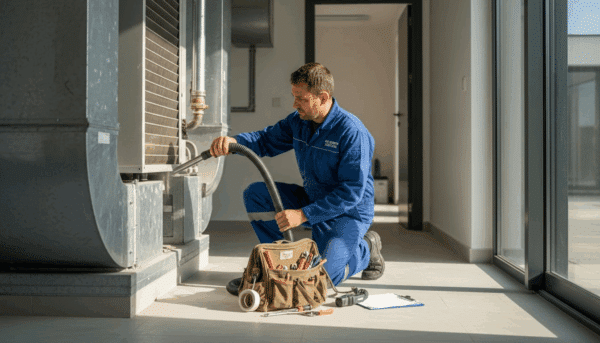
9 Key Insights on the IAQ Testing Process Dubai: Factors and FAQs Explained
Table of Contents
Contents
- 1 Table of Contents
- 2 Introduction to IAQ Testing Process Dubai
- 3 Why IAQ Testing Is Critical in Dubai
- 4 Comprehensive Steps in IAQ Testing Process Dubai
- 5 Main Cost Factors in IAQ Testing in Dubai
- 6 Frequently Asked Questions About IAQ Testing Process Dubai
- 7 Benefits of Proper IAQ Testing in Dubai
- 8 How to Choose IAQ Testing Services in Dubai
- 9 Local Standards and Regulations for IAQ in Dubai
- 10 Conclusion and CTA
- 11 Understanding the IAQ Testing Process Dubai: A Step-by-Step Guide
- 11.1 Pre-Assessment: Preparation and Initial Inspection
- 11.2 Sampling and Measurement: Core Elements of IAQ Testing
- 11.3 Analysis and Reporting: From Data to Actionable Insights
- 11.4 Follow-Up and Remediation: Closing the Loop
- 11.5 Key Benefits of the IAQ Testing Process in Dubai
- 11.6 Summary: What to Expect During Your IAQ Testing in Dubai
Introduction to IAQ Testing Process Dubai
The iaq testing process Dubai is essential for maintaining safe and healthy indoor environments, especially in the fast-growing urban areas such as Downtown Dubai, Dubai Marina, and Business Bay. Indoor air quality (IAQ) has become increasingly important due to rising pollution levels, rapid urbanization, and the heightened focus on workplace and residential health compliance in Dubai. This article delves into the detailed testing process, the key factors involved, and frequently asked questions to provide a thorough understanding tailored for Dubai’s local context.
Why IAQ Testing Is Critical in Dubai
Dubai’s unique climate, characterized by heat and humidity, combined with rapid infrastructure development, creates specific challenges for indoor air quality. Dust storms, construction emissions, and cooling systems can affect the air inside residential and commercial properties.
IAQ testing helps identify pollutants such as volatile organic compounds (VOCs), mold spores, carbon dioxide, carbon monoxide, and particulate matter that can harm occupants’ health. Dubai Municipality and the Dubai Health Authority (DHA) increasingly emphasize IAQ compliance as part of their efforts to support sustainable and healthy living spaces.
Given these factors, understanding the iaq testing process Dubai and its considerations is vital for property owners, facility managers, and health-conscious residents.
Comprehensive Steps in IAQ Testing Process Dubai
The iaq testing process Dubai typically involves multiple stages, executed by trained professionals using advanced equipment. Below is an overview of the main steps:
1. Initial Assessment and Planning
The process begins with an evaluation of the indoor environment, including identifying potential sources of pollution such as HVAC systems, building materials, and occupant activities. In Dubai, this step may also include consideration of seasonal variations and local environmental factors. Thorough initial assessment is key to a successful iaq testing process Dubai.
2. Sampling and Measurements
Specialized instruments measure airborne contaminants. Commonly tested pollutants in Dubai include PM2.5 and PM10 particulates, carbon dioxide levels linked to occupancy, and allergens like mold. Sampling is conducted at various points within a property to get a representative profile.
3. Analysis and Laboratory Testing
Samples collected onsite are often sent to accredited labs for further analysis, such as microbial testing or chemical identification.
4. Reporting and Recommendations
After analysis, detailed reports outline the findings, highlighting any pollutants exceeding acceptable limits based on Dubai Municipality guidelines. Recommendations for remediation or improvement follow, possibly recommending air filtration upgrades.
Efficient execution of the iaq testing process Dubai ensures compliance with Dubai’s health standards and improves occupant wellness.
Main Cost Factors in IAQ Testing in Dubai
When considering the iaq testing process Dubai, understanding the factors involved is crucial for budgeting and decision-making. Though specific considerations vary widely across the Dubai market due to many variables, the following influence overall resource allocation:
- Property Size and Type: Larger buildings or mixed-use developments require more extensive testing to cover all zones.
- Complexity of Testing: Basic particulate and gas testing may involve different resource requirements compared to comprehensive microbial or chemical analysis.
- Number of Sampling Points: More rooms or areas needing testing increase labor and equipment use.
- Frequency of Testing: One-time tests differ from scheduled periodic monitoring in their scope and resource allocation.
- Professional Expertise: Hiring highly accredited specialists or companies with advanced technology may influence the investment required.
For those seeking trustworthy services in Dubai, providers like Saniservice offer professional iaq testing process Dubai focused exclusively on Dubai, guaranteeing localized expertise and compliance.
Frequently Asked Questions About IAQ Testing Process Dubai
What does IAQ testing cover in Dubai?
The iaq testing process Dubai usually includes measurement of allergens, dust particle levels, chemical pollutants such as VOCs, carbon monoxide, carbon dioxide, temperature, and humidity – all tailored to meet Dubai Municipality and DHA standards.
How often should IAQ testing be conducted in Dubai?
Regular testing intervals depend on building use and occupancy. For example, high-traffic commercial buildings in Business Bay or Downtown Dubai may require more frequent testing than low-occupancy residential units in Arabian Ranches. The frequency of the iaq testing process Dubai should be determined by these factors.
Are there regulations mandating IAQ testing in Dubai?
Dubai Municipality and DHA encourage IAQ testing, particularly for commercial buildings and public facilities, as part of broader health and safety requirements. Compliance supports certification processes and occupant wellbeing. Understanding if the iaq testing process Dubai is mandated for your specific property type is crucial for compliance.
Can I perform IAQ testing myself?
While basic monitors are available for home use, professional IAQ testing in Dubai is recommended for accurate, comprehensive results that align with local regulations and standards.
How do weather conditions affect IAQ testing in Dubai?
Dubai’s desert climate with dust storms and hot temperatures influence indoor air quality. Testing ideally occurs during various seasons to capture accurate pollutant profiles.
Benefits of Proper IAQ Testing in Dubai
Understanding and implementing the iaq testing process Dubai offers multiple advantages:
- Health Improvement: Reduces respiratory issues and allergies by identifying harmful pollutants.
- Regulatory Compliance: Meets Dubai Municipality’s environmental health standards for buildings.
- Energy Efficiency: Identifies HVAC inefficiencies impacting air quality and energy consumption.
- Enhanced Property Value: Buildings certified for good indoor air quality attract tenants and buyers.
- Peace of Mind: Occupants and employers know the environment is safe and healthy.
How to Choose IAQ Testing Services in Dubai
Selecting the right service provider is crucial for an effective iaq testing process Dubai. Consider the following:
- Certification and Accreditation: Choose companies accredited by Dubai health authorities or recognized bodies.
- Local Expertise: Specialists familiar with Dubai’s regulations, climate, and building styles.
- Comprehensive Reporting: Ensure detailed, clear reports with actionable recommendations.
- Customer Reviews and Reputation: Check feedback from Dubai clients for reliability and professionalism.
- Use of Advanced Technology: Modern instruments provide more accurate and timely results.
For outstanding IAQ testing process Dubai services, Saniservice stands out for local expertise and thorough iaq testing process Dubai execution.
Local Standards and Regulations for IAQ in Dubai
Dubai Municipality has issued guidelines concerning indoor air quality to ensure public health and environmental protection. Compliance with these regulations is important for landlords, building operators, and businesses.
The Dubai Health Authority also plays a key role in setting and monitoring air quality standards indoors. Test results from the iaq testing process Dubai should align with these local thresholds for pollutants.
In addition, international best practices, especially concerning the intricacies of the IAQ testing process Dubai, from organizations such as NADCA influence standards applied by Dubai professionals, though localized adaptations prevail.
Conclusion and CTA
The iaq testing process Dubai is a vital measure for safeguarding indoor environments from harmful pollutants. With local factors like unique climate challenges and evolving regulations, professional IAQ testing tailored to Dubai’s needs ensures healthy buildings and compliance with municipal standards.
If you are a property owner, facility manager, or developer in Dubai, investing in reliable IAQ testing is a smart step for wellbeing and asset value preservation. To learn more about comprehensive IAQ testing solutions and get expert support, visit Saniservice today.
Understanding the IAQ Testing Process Dubai: A Step-by-Step Guide
Ensuring excellent indoor air quality (IAQ) is essential for safeguarding health, boosting productivity, and complying with Dubai’s increasingly stringent environmental and health regulations. The iaq testing process Dubai is a comprehensive procedure designed to assess and improve the air quality inside residential, commercial, and industrial buildings throughout Dubai’s diverse urban environments, from Business Bay to Dubai Marina. This section dives deep into the typical steps and methodologies employed during IAQ testing, highlighting the key phases that building owners, facility managers, and environmental consultants need to be aware of.
Pre-Assessment: Preparation and Initial Inspection
The IAQ testing process in Dubai generally begins with a thorough pre-assessment phase. This stage involves gathering background information, including building layout, occupancy patterns, ventilation systems, and any previous air quality records. Dubai Municipality guidelines emphasize this step to tailor the testing plan effectively, taking into account local environmental factors such as desert dust infiltration and humidity levels common in Dubai’s climate.
During pre-assessment, an IAQ specialist or consultant will site-visit to visually inspect areas suspected of poor air quality or potential contamination sources. These may include kitchens, restrooms, HVAC systems, storage rooms, or tightly sealed spaces where pollutants can accumulate. Identifying these hotspots early improves test accuracy. Key checks during this phase include:
- Visual inspection of air outlets and ducts for mold, debris, or blockages.
- Assessment of ventilation adequacy based on room dimensions and occupancy.
- Inquiry about any recent renovations, chemical usage, or incidents involving water leaks or pest infestations.
This initial walkthrough and data gathering set the foundation for developing a tailored IAQ testing blueprint aligned with Dubai’s health and safety mandates.
Sampling and Measurement: Core Elements of IAQ Testing
The heart of the iaq testing process Dubai lies in the systematic measurement and sampling of indoor air pollutants. To comply with Dubai Municipality and the Dubai Health Authority standards, accredited professionals utilize specialized equipment to quantify a variety of air quality indicators. These typically include:
- Particulate Matter (PM2.5 and PM10): Fine dust particles are prevalent in Dubai’s urban atmosphere and can enter buildings through natural and mechanical ventilation.
- Volatile Organic Compounds (VOCs): Emitted from paints, cleaning agents, adhesives, and occupant activities, VOCs are closely monitored due to their impact on respiratory health.
- Carbon Dioxide (CO2): Elevated levels often indicate poor ventilation or overcrowding, common in commercial office spaces like those in Downtown Dubai.
- Carbon Monoxide (CO): Typically a byproduct of combustion appliances or nearby traffic, its detection is critical for occupant safety.
- Humidity and Temperature: Both factors influence IAQ by affecting microbial growth and chemical off-gassing.
- Biological Contaminants: Sampling for mold spores, bacteria, and allergens is conducted using air or surface swabs to gauge microbial presence.
Sensors are strategically placed in various building zones, often for 24 hours or longer, to capture peak and average pollutant levels, accounting for operational variations throughout the day. Some facilities may require continuous monitoring if they serve sensitive populations, such as medical centres in the Dubai Healthcare City district.
Analysis and Reporting: From Data to Actionable Insights
Once data collection concludes, the results are analyzed by trained environmental scientists or consultants familiar with Dubai health norms. These experts interpret the findings within the context of Dubai-specific thresholds established by regulatory bodies like Dubai Municipality and the Dubai Health & Safety Department. Since Dubai has unique climatic conditions—high temperatures and desert dust—a tailored approach to analysis ensures relevance and accuracy.
The outcome of this analysis is a detailed report outlining:
- Measured pollutant concentrations alongside acceptable limits.
- Identification of pollutant sources or areas of concern.
- Recommendations to mitigate poor IAQ, such as improved ventilation, use of air purifiers, source containment, or maintenance adjustments.
- Compliance status with relevant Dubai regulations or standards.
Reports submitted to building management or stakeholders serve as a roadmap to improving indoor environments. Importantly, they facilitate compliance with Dubai Municipality’s environmental health inspections and can be critical during licensing or certification renewals overseen by the Dubai Health Authority or Dubai Electricity and Water Authority (DEWA).
Follow-Up and Remediation: Closing the Loop
The iaq testing process Dubai does not end with reporting. Effective indoor air quality management requires ongoing monitoring and implementation of recommended remediation measures. Many buildings, especially commercial offices and hospitality properties across Dubai Marina or Arabian Ranches, establish periodic IAQ assessments as a best practice.
Common remediation strategies advised during follow-up include:
- Enhancing ventilation systems to increase fresh air intake and improve air circulation.
- Installing HEPA or activated carbon filters within HVAC units to reduce particulate and chemical pollutant loads.
- Implementing routine cleaning protocols to manage dust and biological contaminants.
- Addressing moisture intrusion and promptly repairing leaks that lead to mold growth.
- Reducing or substituting materials and chemicals that emit high levels of VOCs.
- Training occupant awareness on behaviours that impact air quality such as smoking bans or use of scented products.
Subsequent rounds of IAQ testing validate the effectiveness of these interventions and ensure sustained compliance with regulatory requirements.
Key Benefits of the IAQ Testing Process in Dubai
Undertaking the iaq testing process Dubai offers numerous advantages, particularly within the local context:
- Health Protection: Dubai’s rapidly growing population and workforce benefit from reduced respiratory ailments, allergies, and absenteeism by maintaining healthier indoor environments.
- Regulatory Compliance: Adherence to Dubai Municipality and Dubai Health Authority air quality standards protects businesses from fines and operational disruptions.
- Energy Efficiency: Optimized HVAC systems, adjusted based on IAQ data, lower energy consumption—a priority aligned with Dubai’s sustainability goals and DEWA’s initiatives.
- Occupant Comfort and Productivity: Improved air quality contributes to better cognitive function and wellbeing among employees in busy zones like Business Bay.
- Property Value Preservation: Buildings demonstrating proactive IAQ management attract discerning tenants and buyers.
Summary: What to Expect During Your IAQ Testing in Dubai
To recapitulate, the iaq testing process Dubai is a structured, consultative approach consisting of preparation, detailed sampling, expert analysis, and actionable reporting tailored specifically to the city’s environmental and regulatory climate. From initial inspections in Downtown Dubai offices to comprehensive air quality monitoring in residential complexes like Nad Al Sheba, this process ensures that policymakers, facility managers, and occupants alike understand and manage their indoor environment proactively.
By leveraging advanced testing technologies and cooperating with licensed Dubai-based environmental consultants, building owners can confidently safeguard health, sustain regulatory compliance, and contribute to Dubai’s vision of a sustainable, healthy living and working environment.





Leave a Reply